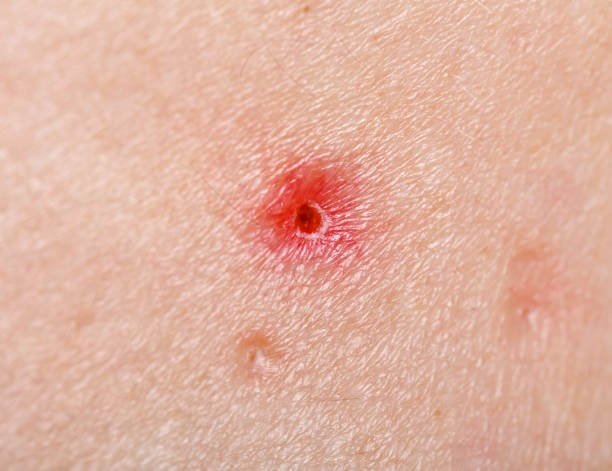Understanding the Causes of Red Spots on the Skin
Red spots on the skin can be a cause for concern and often prompt individuals to seek answers about their origin. While many red spots are harmless and may be related to typical skin conditions, it's essential to recognize when these spots may signify an underlying health issue. In this blog, we will delve into the various causes of red spots on the skin, shedding light on both benign and potentially serious conditions.
1.Allergic Reactions:
One common cause of red spots is allergic reactions. The skin can react to allergens in various ways, ranging from mild redness to more severe hives. Certain foods, medications, or environmental factors may trigger these reactions. Identifying & avoiding the allergen is crucial in preventing recurring red spots.
2. Infections:
Fungi, viruses, or bacteria cause skin infections and can lead to red spots. Conditions like impetigo, herpes, and ringworm can manifest as clusters of red spots with distinctive characteristics. Seeking prompt medical attention is necessary to prevent the spread of infection & ensure proper treatment.
3.Insect Bites and Stings:
Mosquitoes, ticks, spiders, and other insects can leave red, itchy spots on the skin after biting or stinging. While most reactions are mild, some individuals may experience severe allergic responses requiring immediate medical attention. Proper insect repellent and avoiding known insect-infested areas can help prevent such occurrences.
4.Autoimmune Disorders:
Certain autoimmune disorders, such as psoriasis or lupus, can cause red spots on the skin. These types of conditions arise when the immune system mistakenly attacks healthy cells. It leads to inflammation and skin abnormalities. Managing autoimmune disorders typically involves medical intervention to control symptoms and prevent flare-ups.
5.Contact Dermatitis:
Contact dermatitis occurs when the body's skin directly contacts an irritant or allergen. Red spots, itching, and swelling are common symptoms. Identifying the triggering substance and avoiding further contact is essential for resolving the issue. Common irritants include certain chemicals, plants (like poison ivy), and certain metals.
6.Heat Rash:
Excessive sweating in hot & humid conditions can lead to heat rash, presenting as clusters of red spots. Sweat ducts become blocked, preventing the sweat from escaping, resulting in inflammation. Keeping the skin cool and dry, wearing breathable clothing, & staying hydrated can help prevent heat rash.
7.Drug Reactions:
Some medications can cause adverse reactions, including red spots on the skin. These reactions may be immediate or delayed, and their severity can vary. It's necessary to consult with a healthcare professional if you suspect a medication is causing skin issues, as they can adjust the treatment plan accordingly.
8.Vascular Issues:
Conditions affecting blood vessels, such as vasculitis, can lead to red spots on the skin. It involves inflammation of the blood vessels, affecting their function and causing skin abnormalities. Diagnosis and management typically involve a comprehensive medical evaluation.
Conclusion:
Red spots on the skin may often be benign, but they can also signify underlying health issues that require attention. At JIET Hospital Dermatology Department, our dedicated team is committed to providing comprehensive care and accurate diagnoses for individuals experiencing skin abnormalities. Whether it's allergies, infections, autoimmune disorders, or other potential causes, our state-of-the-art facilities and experienced medical staff are equipped to address a wide range of skin conditions. Timely consultation with JIET Hospital ensures personalized treatment plans, fostering skin health and overall well-being. Remember, your skin reflects your internal health, and at JIET Hospital, we are here to support you on your journey to optimal health. Trust our expertise to evaluate and effectively manage red spots and other dermatological concerns.




